Stepping up when the need is great
Ramona McCallister, December 08, 2020 (Central Oregonian)
One of Crook County's most important points of contact for folks who need food or housing assistance has seen a sharp increase in those needs this past year.
To say there has been an increase in need is a gross understatement, and for President of St. Vincent de Paul of Crook County, Charlie Kurtz, the need to become creative and problem solve is equally as important.
St. Vincent de Paul provides a food pantry for low-income individuals as well as emergency help for those needing temporary assistance.

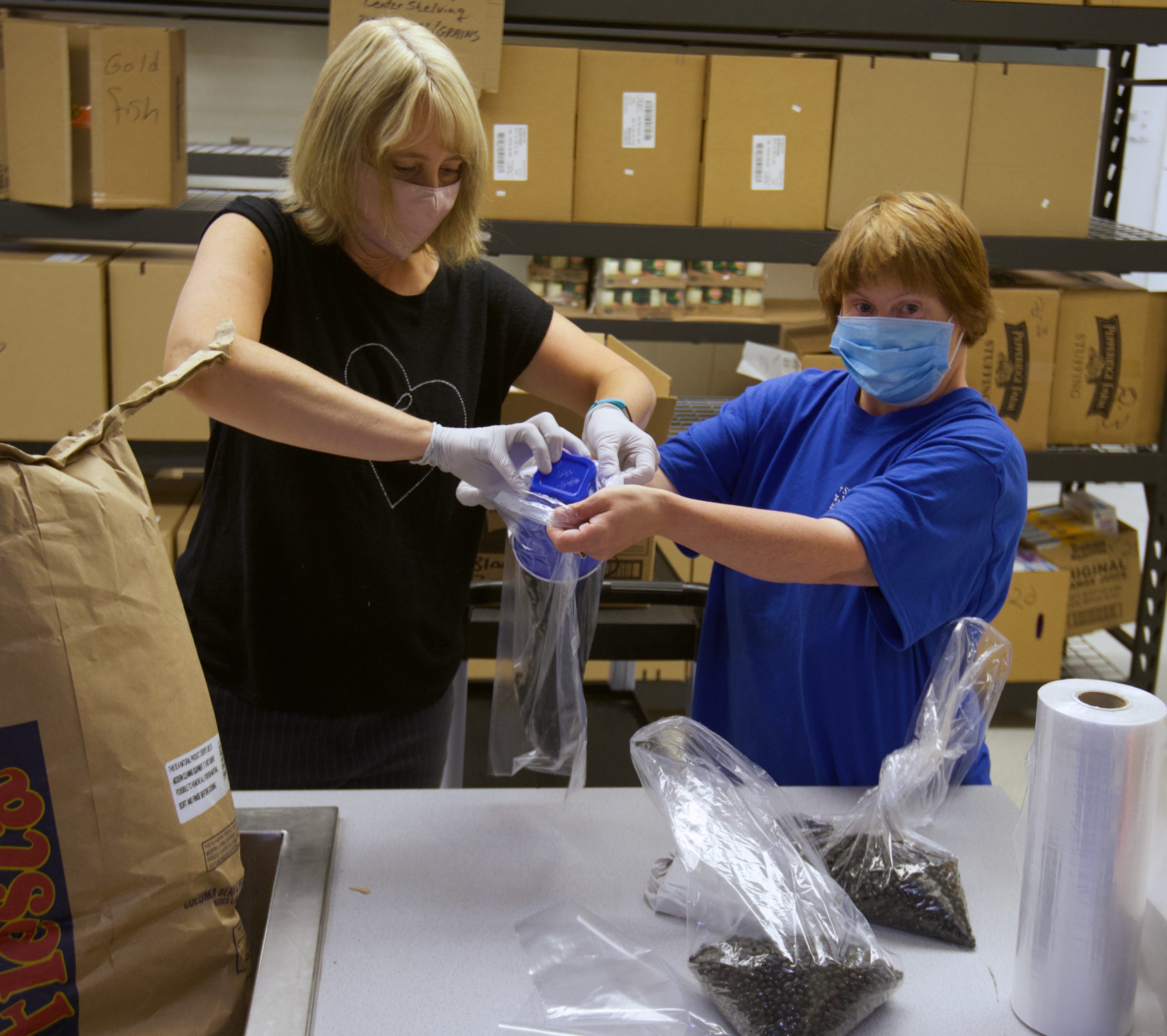
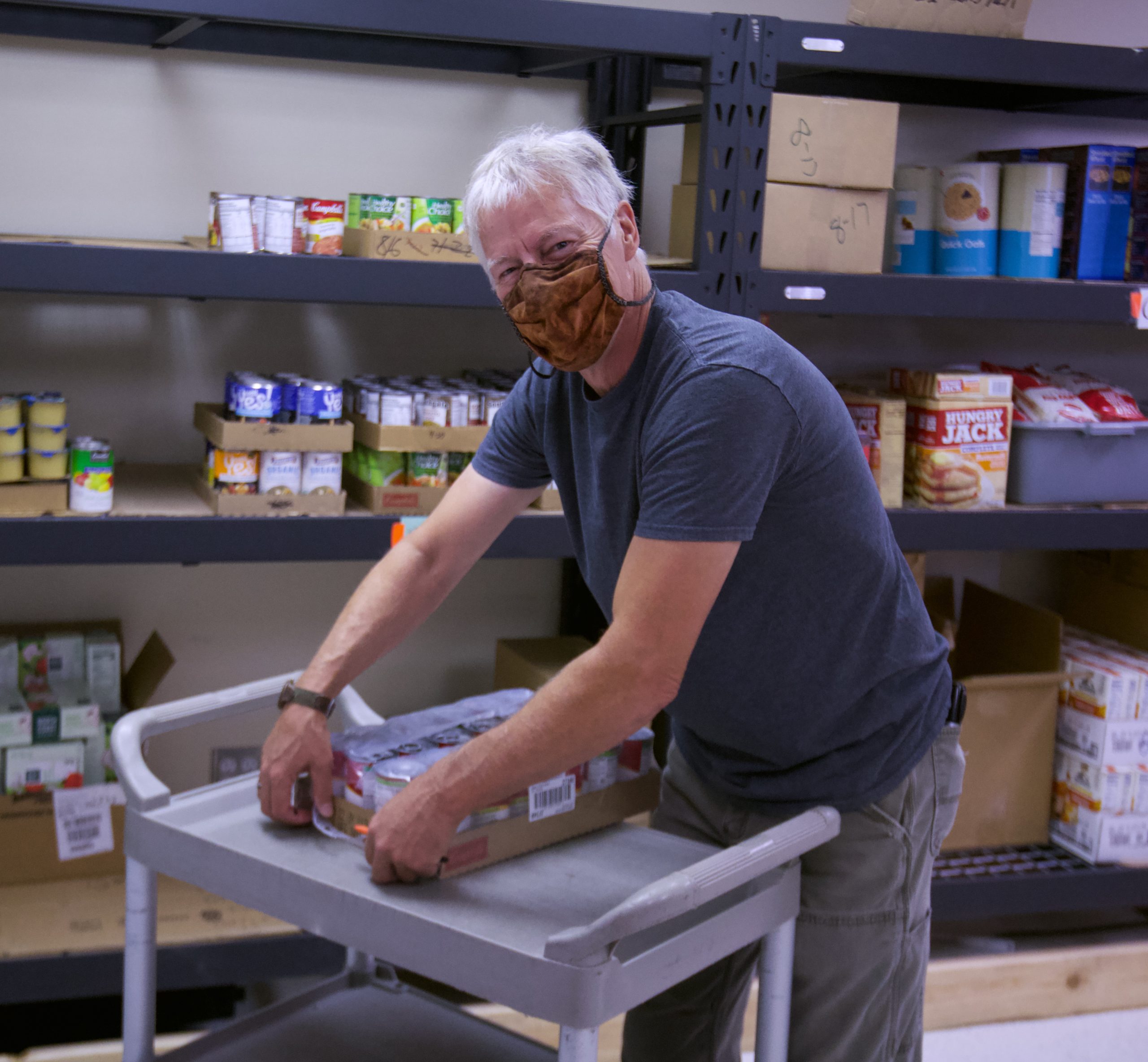
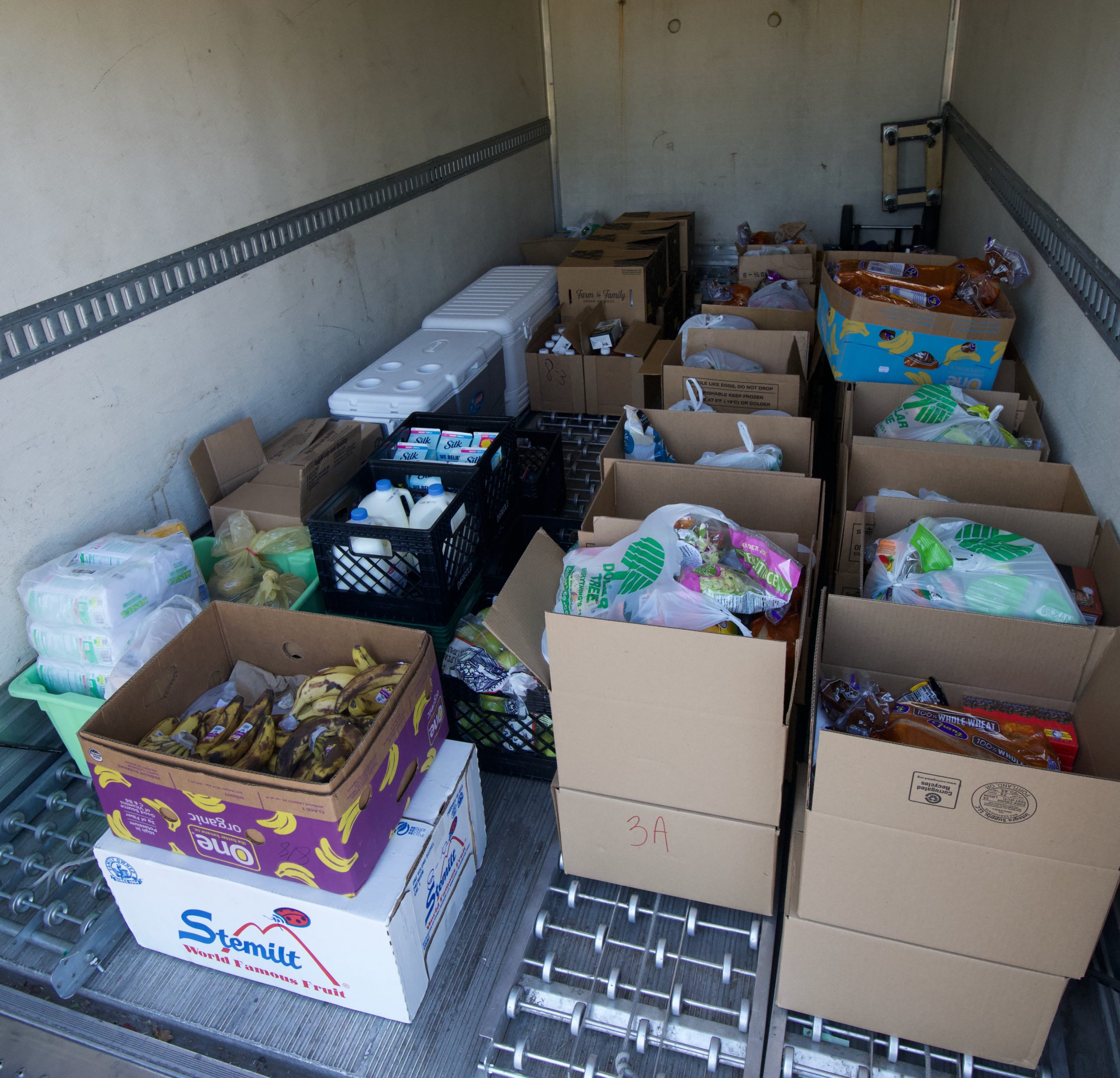
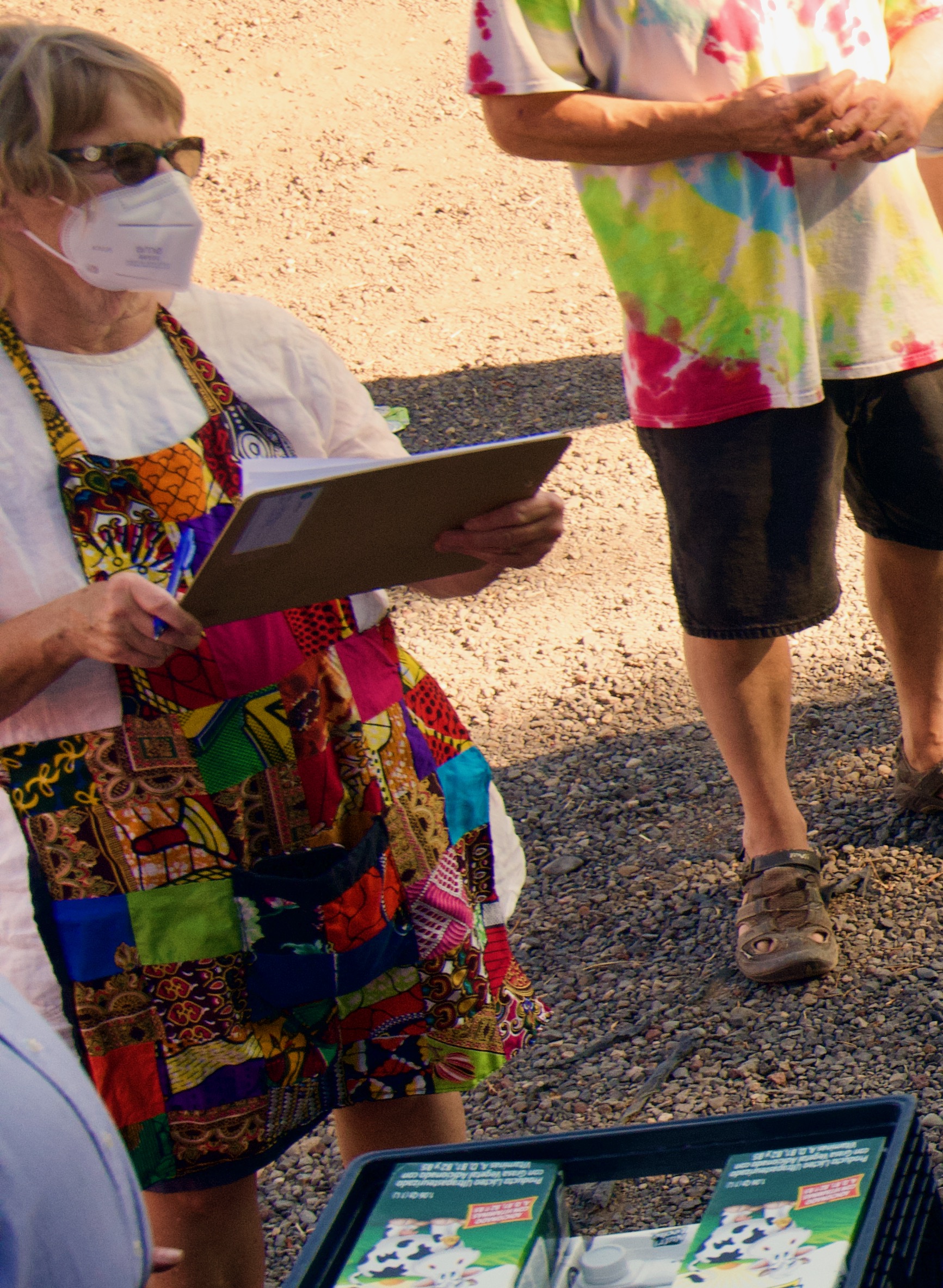
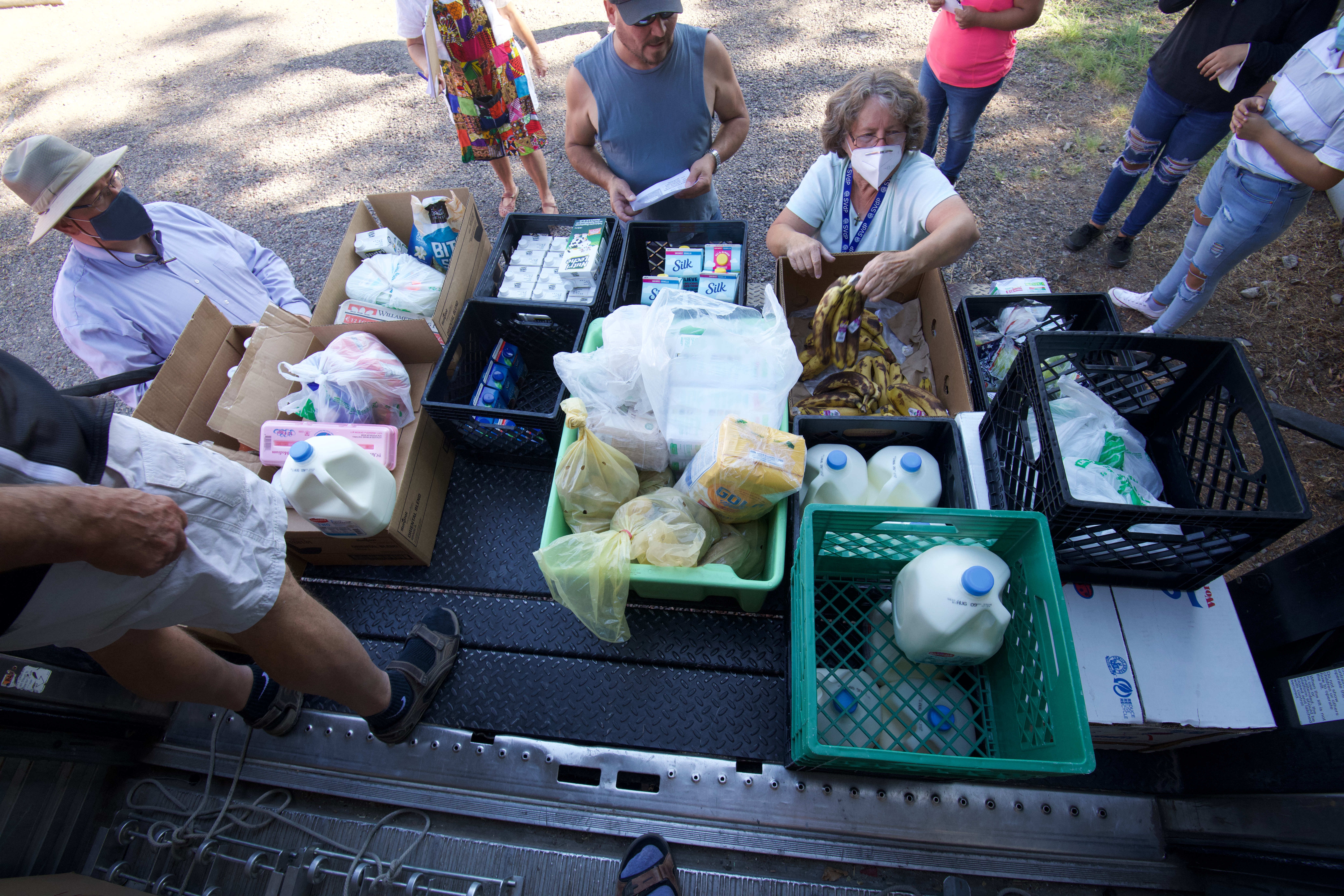
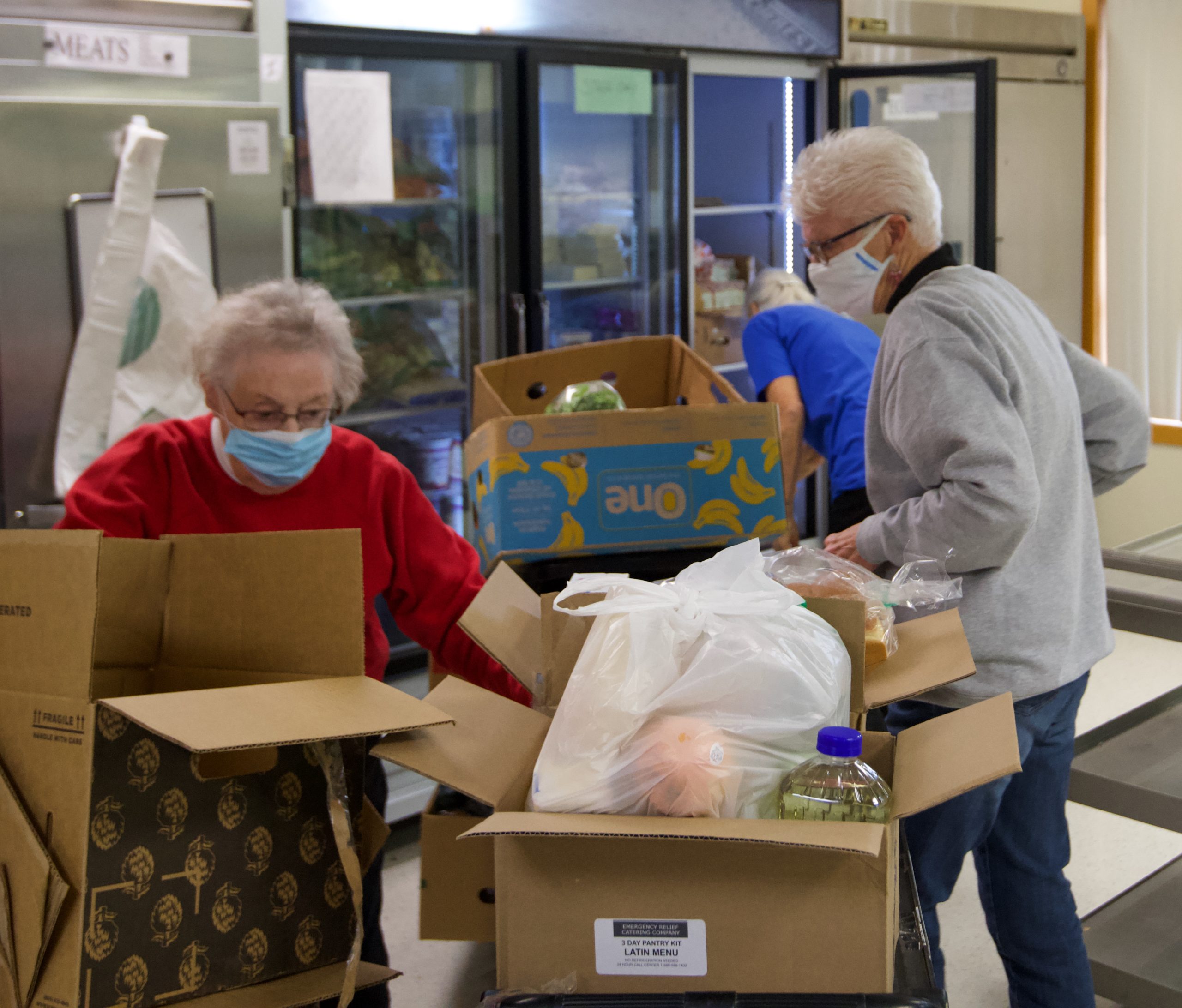
Sharp increase in housing assistance during COVID
"One of the biggest things that has changed is what we call emergency help," commented Kurtz of the increase in need.
St. Vincent de Paul provides emergency help to low-income individuals needing temporary financial assistance with housing, emergency shelter, transportation or other needs. Last fiscal year, they assisted 166 adults and 161 children with $38,800 in financial aid. The demand for housing assistance increased from 70% the previous year to 84% this past year.
"Requests for emergency help increased dramatically due to the impact of COVID and the loss of jobs supporting low-income workers," pointed out Kurtz.
He said that up to one year ago, they averaged approximately $2,000 per month, except for a spike around Christmas. Now, they are up to $10,000 per month.
"This last year, ending September 30, we spent about $39,000 in emergency help, and 84% of it was housing—rent and utilities."
In October and November, they worked with the city to pay water bills for residents who were behind on their water bills. In October alone, they spent $12,600 in emergency help. City water bills accounted for $3,400 of the total, as the city started shutting off water to customers who were behind in their payments.
"The city sent us $8,000 in COVID relief funds and told their delinquent customers to come to us for assistance," added Kurtz. "We've paid the city $10,020 to get water services restored from September 1 to date."
Kurtz indicated that his concern now is keeping people in their homes – especially with the rent moratorium expiring the end of December.
"We work in partnership with NeighborImpact on rent and utility assistance," he said. "We ask folks to seek help from NeighborImpact first. NeighborImpact refers clients to us that don't meet the specific program requirements they administer."
Food pantry and volunteers
St, Vincent de Paul operates a food pantry that provided food to 700 low-income individuals last month. For the fiscal year just finished, they served 2,812 households with 7,154 individuals with enough food for five days, which equals 107,000 meals.
Households are eligible for food every two weeks. They receive non-perishable food weighing 40 pounds or more, based on the number of people in the household, plus two kinds of meat, eggs, milk and fruit, depending on availability.
"Guests enter a drive-thru in the parking lot at 1103 NE Elm St.," said Kurtz. "They are asked to stay in their car and wear face masks. A volunteer takes their information and posts it on a sticky note on their car's windshield. Three volunteers load their vehicle with food."
St. Vincent is able to provide their services with the help of generous volunteers in the community. Volunteers were designated as "essential workers" by the State of Oregon at the start of the pandemic. Many of their older volunteers stepped back, but younger volunteers stepped forward to fill the vacancies.
"We average 36 volunteers a month, who collectively worked 8,400 hours and donated 30,000 miles commuting to the pantry for work this past year," Kurtz said of his volunteers. "Volunteers are asked to commit to two to four hours a day, once a week. We could use a few strong volunteers to unload and stock 4,000 pounds of food each Monday. Please call our office if you are interested in helping."
He said that some of their best volunteers came to help because of their need to perform community service. They have several volunteers with physical or mental challenges who find a rewarding experience helping unload, sort or distribute food. These individuals are fortunate to have a friend or family member work alongside them.
Volunteers have also been instrumental in helping reach underserved folks in Crook County. At the urging of Virginia Hilderbrand, one of their board members, they started a mobile pantry outreach to RV or trailer parks in the Crook County area, delivering food boxes to people in need who did not drive or were afraid to visit their food pantry for fear that any help they might receive would be used against their application for permanent resident status.
Hilderbrand knows many underserved people in Prineville, and Kurtz said that she has routinely taken food to folks in several trailer parks in Prineville.
"She raised our awareness that many of these folks lost work because of COVID and weren't eligible for federal relief benefits or workman's compensation. At her urging, we started our Mobile Pantry outreach."
Hilderbrand is a graduate of University of Autonomy of Mexico, with a 1987 degree in surgery. She has been a St. Vincent de Paul volunteer since 2006.
"She feels strongly in helping those in need and has been a great motivator," said Kurtz. "We visited 10 parks, the most distant were Sun Rocks RV and Juniper Grove," Kurtz pointed out. "Visits dropped to once a month after school started. We plan to increase the visits to every two weeks."
In spite of increases in demand for services at the local SVDP, they paid forward to the St. Vincent de Paul Rogue Valley Council of Medford for people made homeless by the Almeda fire. Rogue Valley requested "twinning" donations from other Vincentians to purchase tiny houses to be set up in their parking lot to house some of the people made homeless by the Almeda fire.
"We received a $5,000 donation from the Bend SVDP Conference last year when we started back up and decided to pay the same amount forward to Rogue Valley Council," noted Kurtz.
Kurtz reported that the 2021 Business Plan for St. Vincent projects total expenses of $134,000, almost double last year's plan of $70,000. Demand for emergency help is expected to increase to $78,600: $10,000 per month for six months followed by $2,000 per month, as the effects brought on by COVID will hopefully subside. $6,600 is allocated to Redemption House Ministries to support the full-time operation of the women's shelter, which is a resource to direct women who come to St. Vincent de Paul seeking emergency shelter.
"The growth of our business plan was made possible, in part, due to the generosity of last year's donors, which enabled us to carry forward a balance of $44,530," stressed Kurtz. "We pray that our donors will continue their generosity in the coming year."
